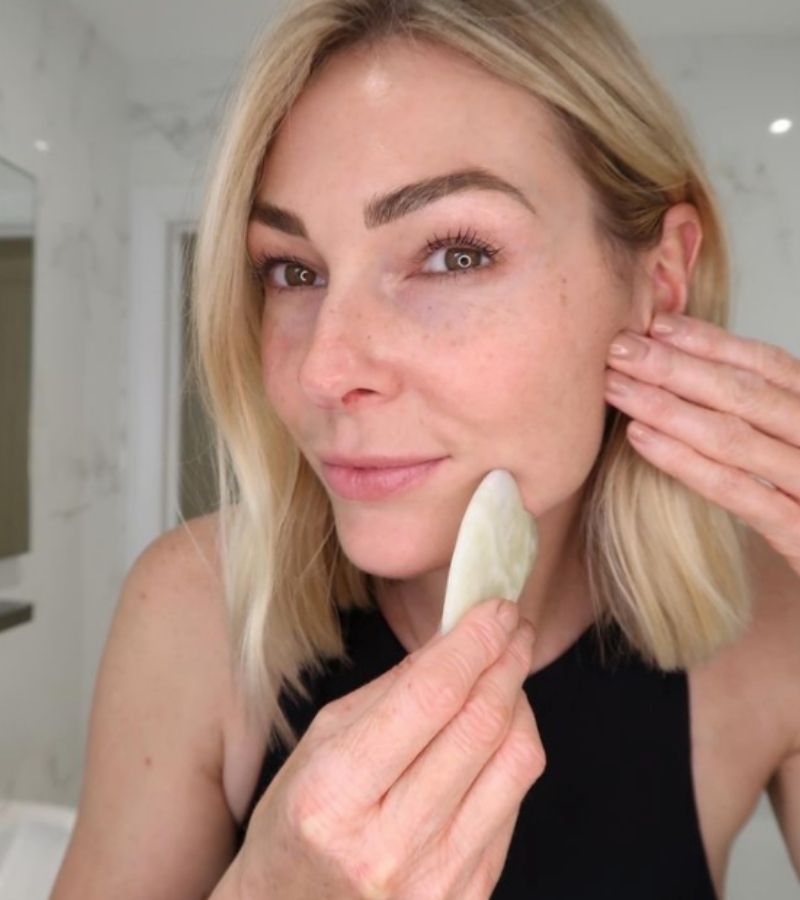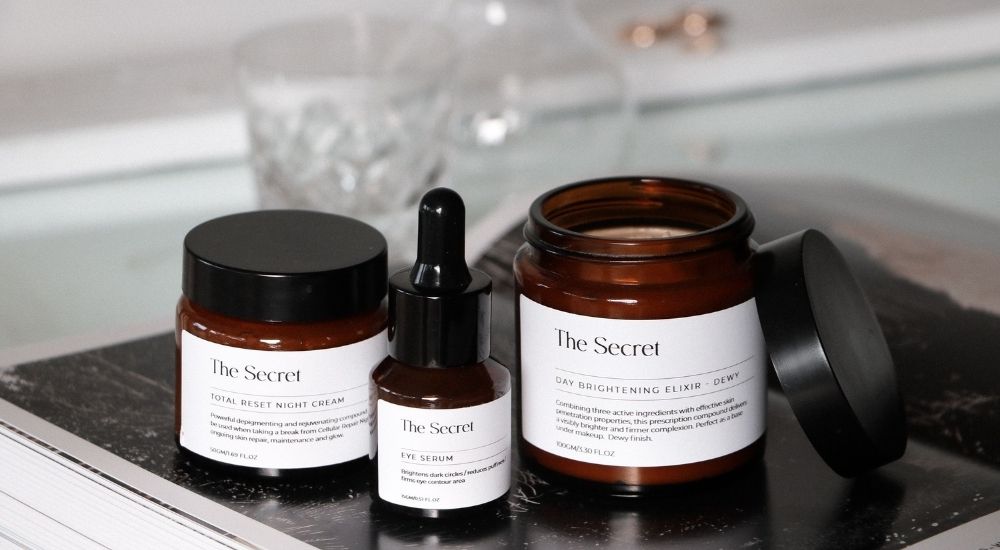Beauty therapy is an inherently intimate, tactile experience. For the client and practitioner, the power of touch is essential to the relationship and the experience. In-person, beauty therapists can also pick up on lifestyle factors that may be impacting their clients and provide detailed guidance that helps them achieve their skin goals. However, COVID-19 has seen beauty therapists do things differently. So how have beauty therapists and professional skincare brands been doing things differently? And more importantly, can online ever compare to in person?
Michaella Bolder, a UK based beauty therapist whose nail, tanning and skin work appears on the covers of magazines, red carpets and runways worldwide, thinks yes. When the UK locked down in 2020, she started offering virtual facials. Client feedback was overwhelmingly positive. Not only did they love being taught to perform facial massage, but they also received targeted advice about their skin concerns and goals. Creating virtual bespoke routines also helped boost Michaela boost bottom line – following the consult products could be delivered directly to the clients’ door.
The sessions were so successful and profitable Michaella has continued to offer them as the UK returns to “normal.” “They offer a super accessible way for clients to ask me questions about their skincare or learn facial massage,” she says. She adds that going virtual has grown her client base: “It’s enabled me to meet new clients from across the world who never would have been able to visit me in salon!”

Michaella is not alone in leaning into restricted in-person services. Asha Everetz is a Melbourne based naturopath, beauty and dermal therapist. When the pandemic hit in 2020, rather than shutting down as an interim measure, she made a big decision. She explains: “I felt uncomfortable continuing to see clients in the CBD, so I took everything online. We ended our lease, reduced our overheads and jumped right in – and things took off from there.” Asha already had a sense of the potential of online services as she’d been offering Skype consults for international and interstate clients for a few years. She says there’s been consistent demand for online services during Melbourne’s six lockdowns; she and her staff are “typically booked out 4-8 weeks in advance.”
Clear Skin Experts, who specialise in treating severe and persistent acne, were already being discovered by clients online. “Previously clients would find us online and then travel interstate”, Asha explains, “now we’re better able to service regional and interstate clients at their convenience, which is rewarding.” Like Michaella Bolder, Asha has encouraged a healthy e-commerce component to the business. Clear Skin Experts send everything from customised Dermavidual’s prescriptions, PRIN home kits, supplements and virtually shade-matched foundation samples to their clients following appointments.
While virtual has been a boon for her business, Asha says that she still believes in a hybrid structure. “There was a little bit of virtual fatigue at the end of the last lockdown. We opened a space in Collingwood where we offer skin needling, LED and PRIN. But our initial consults are virtual.” Her staff also miss in person. “The most challenging aspect is working in isolation – we really miss each other.” They also miss the “highs” of the job that provide opportunities for team and client bonding. Like celebrating huge milestones for their clients: “Part of the joy is when we’ve healed their skin condition, and they’re ready for skin needling scar revision – it’s a big celebration and very rewarding when we get to that point.
The power of personalisation:
Professional brands are also launching hyper-personalised products to clients in a direct-to-consumer environment. Professional skincare brand The Secret exploded during lockdowns, with sales driven by their breathtaking client before and afters on social media and work-from-home skincare lovers upping the strength of their routines. Dr Clara Hurst and Dr Deb Cohen-Jones offer a range of high-performance products that would typically require a trip to a dermatologists office.
“Customers often don’t understand the significantly superior efficacy of products like tretinoin and hydroquinone,” say founders Dr Deb Cohen-Jones and Dr Clara Hurst. Social media has helped them illustrate this difference, demonstrating the powerful results professional-grade actives can achieve in stubborn skin conditions like acne and melasma. One of the major hurdles, however, has been delivering prescription-strength products safely. “Prescription-strength products are prescription for a reason,” say The Secret team, and they need to be used with supervision.

The team say: “One of the challenges we’ve had to navigate is monitoring patients use of these ingredients. Education and customer service have been key.” The Secret provides detailed product information with every order informed by the comprehensive skincare questionnaire. Their order form is complete is designed to catch errors in self-reporting. The prime example of an error in self-reporting caught out by the right series of questions is the client, who thinks their only issue is acne.
Deb Cohen-Jones says, “It would be logical to prescribe them The Secret ‘Acne’ Night Formula. However, if we ask the client to describe the appearance, location, and frequency of the breakouts, we may better understand the kind of skin condition the patient is experiencing. The Secret also ask for an exhaustive list of products the client is using, and your prescription arrives with a list of products you should discontinue using or use differently. As with skincare purchased through a salon or dermatologists office, the biggest issue is non-compliance from clients. “Most mishaps we see are patients ignoring usage instructions.”
Want the full story? Check out page 78 of the November-December digi-mag.
Read the current issue of our digital magazine here:
- For more news and updates, subscribe to our weekly newsletter
- Follow us on Instagram
- Like us on Facebook
- Join Australia’s largest network of beauty industry professionals on LinkedIn
- Subscribe to our print magazine
Have an idea for a story or want to see a topic covered on our site and in our pages? Get in touch at info@professionalbeauty.com.au.

